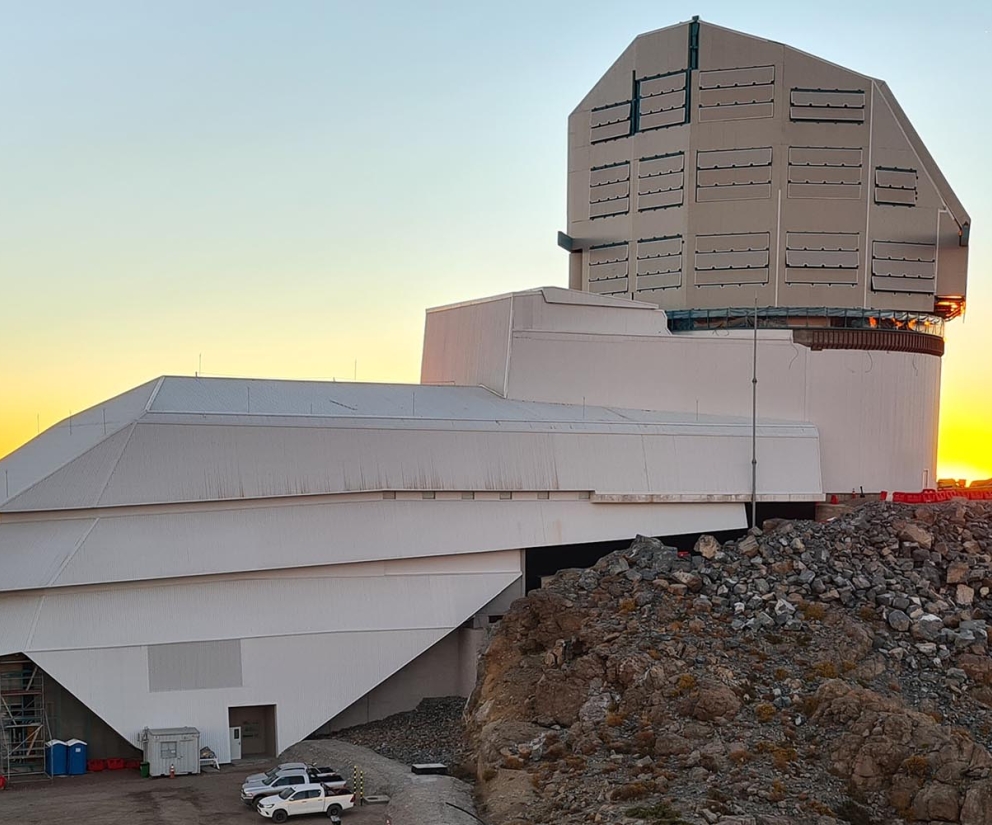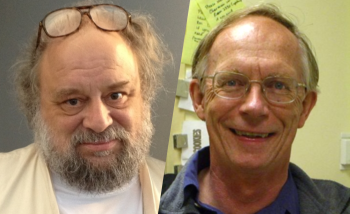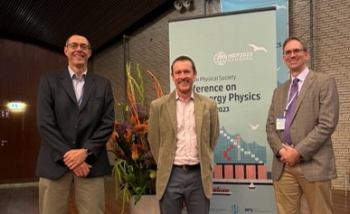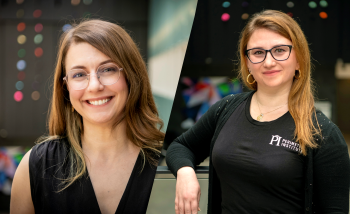Asimina Arvanitaki wins 2022 CAP-TRIUMF Vogt Medal
Perimeter Faculty member Asimina Arvanitaki has been awarded the 2022 CAP-TRIUMF Vogt Medal for Contributions to Subatomic Physics.
Presented by the Canadian Association of Physicists (CAP) and the TRIUMF particle accelerator centre, the 2022 Vogt medal recognizes Arvanitaki for her “innovative contributions to a number of areas of fundamental physics and in particular for identifying experiments that could test the underlying physics.”
Arvanitaki, who holds the Stavros Niarchos Foundation Aristarchus Chair in Theoretical Physics at Perimeter, specializes in devising small-scale – but precise – experiments that scrutinize the limits of major theories. These ‘tabletop experiments’ are part of the ongoing effort by physicists to close some of the longstanding gaps in the standard model of particle physics.
The experiments can take many forms. For example, Arvanitaki has recently devised a method of detecting the presence of axions using a resonant mass detector, a tool that has been around since the 1960s but has not before been used in the way Arvanitaki proposed. Axions are hypothetical particles which, if they exist, might be one explanation for dark matter.
In another of Arvanitaki’s innovations, she described how nuclear magnetic resonance might also allow researchers to observe the influence of axions, an idea that led to an ongoing international collaboration called ARIADNE.
“Asimina is a trailblazer,” said Perimeter Institute Director Robert Myers. “Her work developing new ways to detect fundamental particles is opening up exciting frontiers and inspiring the next generation of particle physicists. This is a well-deserved honour.”
Arvanitaki has also proposed methods by which gravitational wave detectors, like the Laser Interferometer Gravitational-Wave Observatory (LIGO), might be used to find clouds of bosons that extract energy from black holes. These boson clouds offer yet another possible explanation for dark matter.
Arvanitaki’s research program has wide-ranging implications, from dark matter and the study of black holes to supersymmetry and string theory. The Vogt medal is awarded in recognition of these accomplishments.
“I am extremely humbled to have received this award,” said Arvanitaki. “It’s always special to be recognized by your scientific peers, and I would like to thank both the Canadian Association of Physicists and TRIUMF from the bottom of my heart.”
About PI
Perimeter Institute is the world’s largest research hub devoted to theoretical physics. The independent Institute was founded in 1999 to foster breakthroughs in the fundamental understanding of our universe, from the smallest particles to the entire cosmos. Research at Perimeter is motivated by the understanding that fundamental science advances human knowledge and catalyzes innovation, and that today’s theoretical physics is tomorrow’s technology. Located in the Region of Waterloo, the not-for-profit Institute is a unique public-private endeavour, including the Governments of Ontario and Canada, that enables cutting-edge research, trains the next generation of scientific pioneers, and shares the power of physics through award-winning educational outreach and public engagement.




